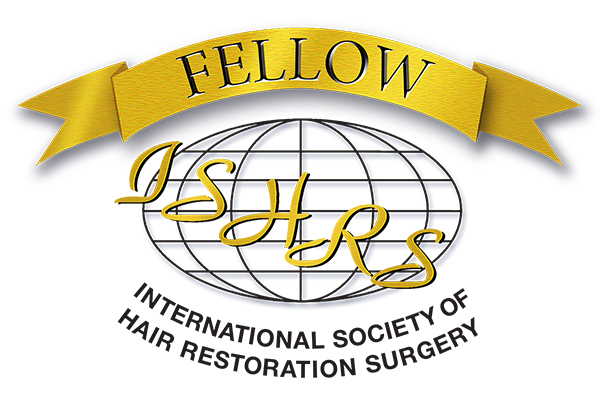International Hair Loss Organization Redefines the Name of a Popular Surgical Procedure to Better Inform Patients Worldwide
Newton Centre, MA – (April 17, 2018) – Dr. Robert Leonard, Founder of Leonard Hair Transplant Associates (LHTA) and a Fellow of the International Society of Hair Restoration Surgery (ISHRS), praised the ISHRS’ decision to redefine the popular hair transplant procedure, formerly known as Follicular Unit Extraction (FUE), to Follicular Unit Excision. According to ISHRS, the purpose of this culture and name change is to be more scientifically, clinically, and academically correct with the procedure and terminology. The major reason behind this name change also is to inform the general public that this specific surgical procedure must be performed by a surgeon and not by technicians.
 “As surgical hair restoration continues to grow worldwide, many consumers are not being treated by physicians and are having an FUE procedure at the hands of personnel without the proper credentials or experience necessary to provide expert treatment,” said Leonard. “The International Society of Hair Restoration Surgery’s decision to utilize the word ‘excision ’rather than ‘extraction’ was made to better educate patients to the procedure’s true surgical nature. This change is to reinforce that FUE harvesting should only be performed by a licensed and trained physician, and not by a technician, assistant or other personnel as we have commonly seen in some hair transplant surgery practices.”
“As surgical hair restoration continues to grow worldwide, many consumers are not being treated by physicians and are having an FUE procedure at the hands of personnel without the proper credentials or experience necessary to provide expert treatment,” said Leonard. “The International Society of Hair Restoration Surgery’s decision to utilize the word ‘excision ’rather than ‘extraction’ was made to better educate patients to the procedure’s true surgical nature. This change is to reinforce that FUE harvesting should only be performed by a licensed and trained physician, and not by a technician, assistant or other personnel as we have commonly seen in some hair transplant surgery practices.”
The popularity of the Follicular Unit Excision harvesting technique where follicular unit grafts are excised (surgically cut and then pulled) from the back and sides of the patient’s head for transplantation in the bald or thinning areas of concern is on the rise worldwide.
At Leonard Hair Transplant Associates, only a licensed physician performs FUE surgery ensuring a safe and effective procedure. Dr. Matthew Lopresti, Chief Surgeon at LHTA is a noted expert in FUE technique. Dr. Lopresti is a graduate of the University of Massachusetts and earned his medical degree from the University of New England College of Osteopathic Medicine. He completed his internship at St. Joseph’s Medical Center in Pennsylvania, his residency at Boston Medical Center, and his fellowship through Harvard Medical School.
“It is alarming to see how many purported hair loss specialists are allowing non-physicians to perform FUE surgical procedures on unsuspecting patients,” said Lopresti. “Make no mistake, follicular unit excision is surgery and should only be performed by a licensed and experienced physician.”
About Leonard Hair Transplant Associates:
Leonard Hair Transplant Associates offers the latest technology in hair restoration surgery and medical treatments, customized to meet individual patient hair loss needs, including Traditional Hair Transplantation, Follicular Unit Excision (FUE) Transplantation, CapillusRx™ Laser Device, and Propecia®. With offices in Cranston, Rhode Island, Boston, Worcester, Braintree, and Newton Centre, Massachusetts, and Salem, New Hampshire, Leonard Hair Transplant Associates is dedicated to providing an honest, realistic medical evaluation of each individual’s hair loss problem. For more information, visit www.hairdr.com.
About ISHRS:
ISHRS is dedicated to achieving excellence in patient outcomes by promoting the highest standards of medical practice, medical ethics, and research in the medical hair restoration industry. The ISHRS also provides continuing medical education to physicians specializing in hair transplant surgery and is committed to delivering the latest information on medical and surgical treatments to consumers suffering from hair loss, and most commonly from androgenetic alopecia – male pattern baldness and female pattern hair loss. For more information, visit www.ishrs.org.

